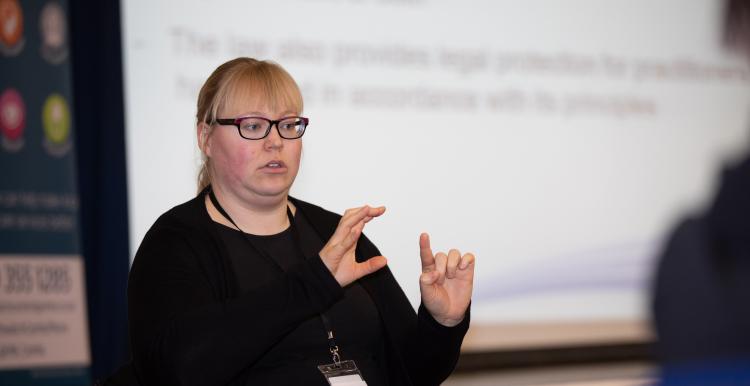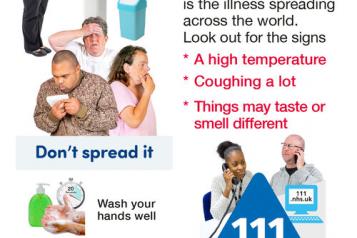Accessible Information Standard Workshop

The workshop was an opportunity for people to share best practice and learning from each other’s experiences of implementing the Accessible Information Standard (AIS) and supporting individuals with communication needs.
We were delighted with the attendance, with representatives from 21 local organisations choosing to get involved. Presentations were given by Avon and Wiltshire Mental Health Partnership NHS Trust, Bristol Community Health and RUH Bath.
Future plans
Each presentation touched on the work that each organisations have been doing, what has been a challenge and how they are working to overcome it, and future plans to continue compliance with the Standard.
Examples included setting up AIS steering groups, recording and flagging clients’ needs, offering Deaf awareness training, putting up signage in large print and using colours that are appropriate for patients with additional accessibility needs.
Knowledge sharing
Following the presentations attendees had an opportunity to take part in small group discussion, the purpose of which was to encourage other organisations to share what they have been doing and to inspire fresh ideas to come to the fore – one of which was to set up an AIS alliance. There was a focus on knowledge and information sharing, vital in times of funding cuts and stretched resources, as well as joint working.
Attendees also felt that it was important that the people the AIS is aimed at helping are involved in discussions about how to make information accessible, and that we cannot and should not make assumptions about an individual with a disability.
What also became clear through this and research carried out by us and Healthwatch South Gloucestershire via a survey in 2017, is that there remains a lack of knowledge among the public and health and social care staff about the AIS, which means that people may not be receiving all of the support that they require or are entitled to.
There is still a lot of work to be done across organisations to ensure that patients are getting information in a way that they need and understand, and more awareness raising is required too.
We were delighted with the level of interest in the workshop, and the enthusiasm that was evident on the day. There is an overwhelming drive and appetite from organisations to implement the AIS and ensure that disabled patients’ needs are being met.
What next?
We have started the conversation and will now work with partners to help local providers to continue sharing ideas and best practice.
We hope that this work will result in a real improvement in the support that is available for patients with communication needs through local health and social care services.
Read our reports:


